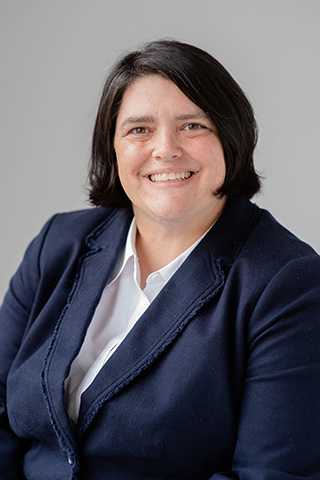Sarah Jones, University of West Georgia – Foster Care Youth and Higher Education Aspirations
 On University of West Georgia Week: Students from foster homes face a harder road to college.
On University of West Georgia Week: Students from foster homes face a harder road to college.
Sarah Jones, assistant professor of higher education and college student affairs, discusses the resiliency of this group of learners.
Sarah Jones is an Assistant Professor of Professional Counseling and College Student Affairs. She teaches in the College Student Affairs and Higher Education Administration programs. Before graduating from the University of Georgia with a degree in Counseling and Student Personnel Services, Sarah worked as a classroom teacher for 10 years in North Carolina Public Schools then as an administrator in higher education where she worked with students transitioning from high school to college. Her research emphasizes the educational experiences of students emerging from foster care, particularly the matriculation, retention, progression, and graduation of this group of students.
“This segment was recorded at The WOLF Internet Radio in the Department of Mass Communications at the University of West Georgia.”
Foster Care Youth and Higher Education Aspirations
Despite their disproportionately low representation in higher education, most students who experience foster care have postsecondary aspirations. This sense of hope and optimism in education from a group of students that has been historically underserved and overburdened was the foundation for a phenomenological inquiry into the educational transitions of students who experienced foster care.
Students who experience foster care are a diverse group who are impacted by their childhood experiences with neglect and abuse. Though participants described anxiety, depression, and hopelessness that arose from their previous experiences, they generated their own educational equity by transferring the skills they needed to survive the foster care system into their educational environments. They entered classrooms with perseverance, resilience, and stamina and worked diligently to graduate despite myriad barriers.
Students who experience foster care are a vulnerable yet resilient group. Currently half of the population do not graduate high school, and less than 2 percent of the 10 percent who transition to college persist until graduation. However, for those who do persist and succeed, the major themes of this research reflect both their vulnerability and their resilience.
Alumni of foster care deserve the best, and professionals in higher education can help to generate equity by working to understand students’ unique perspectives and advocate for changes in the educational systems. In doing so, more students who experience foster care may have the opportunity to actualize their dreams of attending and succeeding in college.



A wonderful summary of important research.